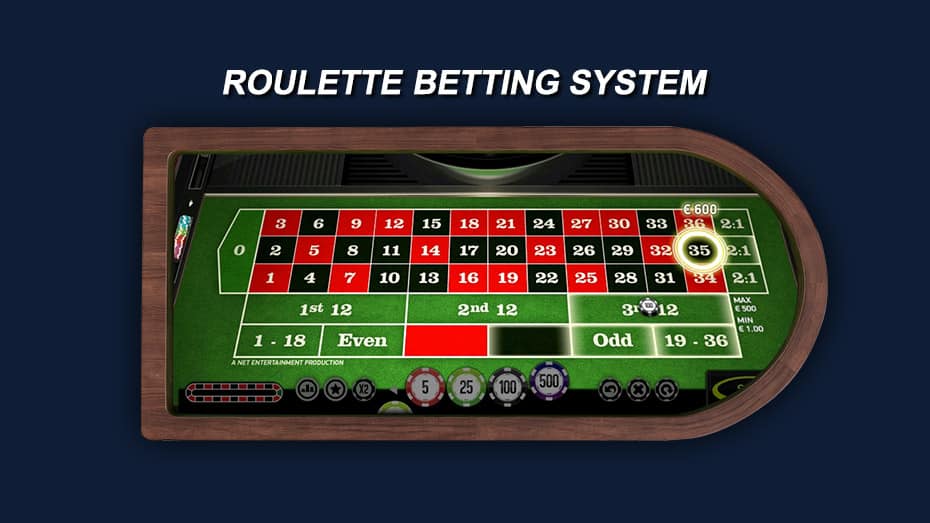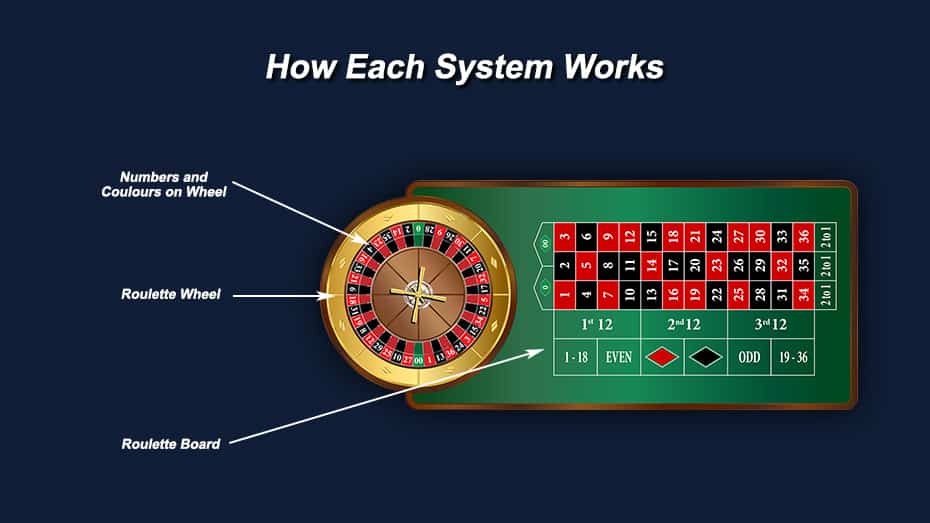How to Beat Roulette With 747 Live Roulette betting system
The word “betting system” may be familiar if you play roulette often. When playing roulette, players employ a betting system to decide how much and what kind of bets to place. While many players may depend on chance, roulette betting strategies provide a more systematic approach. In this post, we’ll examine some of the most well-liked roulette betting systems and explain how they operate.

Understanding roulette betting systems is essential for players who want to improve their chances of success and properly manage their bankroll. Instead of depending primarily on chance, these betting systems provide players with a more systematic way to place bets.
Players that use betting systems may manage the types and quantities of bets they place, improving their odds of winning while reducing their losses. It’s crucial to remember that success is only sometimes guaranteed by betting strategies. Therefore players should always take risks sensibly. We’ll examine some of the most well-liked roulette betting strategies and describe how they operate.
Types of Roulette Betting Systems
There are several different types of roulette betting systems, each with its own unique approach and strategy. Each system has advantages and disadvantages, and it is important to understand these before using them in a game.

Some of the most well-known types include:
How Each System Works

Martingale System
The Martingale System calls for players to double their wagers after each loss to cover their losses and turn a profit when they ultimately win.
Fibonacci System
Based on the Fibonacci sequence, the Fibonacci Technique uses this system, and players raise their wagers in proportion to their previous two wagers.
D’Alembert System
The D’Alembert System calls for raising or lowering your wager by one unit in response to each victory or loss.
Labouchere System
In the Labouchere System, participants generate numbers and utilize them to calculate their stakes.
Paroli System
The Paroli System includes increasing your wager each time you win to increase your earnings.
James Bond System
The James Bond System is a well-liked betting strategy that entails putting certain bets to cover the roulette table fully.
Mechanisms Behind Each System
Martingale Method, One of the most well-known roulette betting systems is the Martingale strategy. It entails doubling your wager after each loss to recover your losses and turn a profit when you ultimately win.
The Fibonacci system is a well-known wagering strategy based on the Fibonacci sequence. Based on their previous two wagers, players raise their wagers. 1, 1, 2, 3, 5, 8, 13, 21, 34, 55, and so on make up the order.
In the D’Alembert method, you should increase your stake by one unit after each victory or loss. The theory behind this is to lessen your risk while also assisting you in recovering from losses more rapidly.
The Labouchere strategy is a more intricate betting scheme that entails generating a series of numbers and utilizing them to calculate your stake sizes. Although you may pick any number for the sequence, it usually has between 5 and 10 digits. Your initial wager is calculated by adding the first and final numbers in the series; if you win, those numbers are removed from the sequence.
The Paroli technique recommends increasing your wager after each victory to increase your wins. Because it is predicated on winning rather than losing streaks, this strategy is less dangerous than the Martingale system.
The James Bond approach is a well-known betting strategy involving putting certain bets to cover the roulette table completely. The method entails betting on the numbers 19–36, 13–18, and 0. It also includes betting on the number 0.
Pros and Cons of Each System
Martingale System
Pros
● Can potentially yield high profits with a relatively small starting bet.
● Simple and easy to understand.
Cons
● Can quickly lead to significant losses if a losing streak occurs.
● Requires a large bankroll to sustain prolonged losing streaks.
● Can result in reaching the table limit quickly.
Fibonacci System
Pros
● Offers a more gradual increase in bets than the Martingale system.
● Can be more forgiving of losing streaks than other systems.
Cons
● Like all betting systems, it does not guarantee success.
● Requires careful tracking and calculation of bets.
● May require a larger bankroll for longer sessions.
D’Alembert System
Pros
● Offers a more conservative betting strategy.
● Can help mitigate losses during a losing streak.
Cons
● Requires careful tracking and calculation of bets.
● Like all betting systems, it does not guarantee success.
● May not yield as high of profits as more aggressive systems.
Labouchere System
Pros
● Offers a more customizable betting strategy.
● Can potentially yield high profits with a relatively small starting bet.
Cons
● Requires careful tracking and calculation of bets.
● Like all betting systems, it does not guarantee success.
● Can be complicated to understand for beginners.
Paroli System
Pros
● Offers a more conservative betting strategy.
● Can potentially yield high profits with a relatively small starting bet.
Cons
● Like all betting systems, it does not guarantee success.
● Requires careful management of winnings to maintain profits.
● May not yield as high of profits as more aggressive systems.
James Bond System
Pros
● Offers a structured and easy-to-follow betting strategy.
● Can potentially yield high profits with a relatively small starting bet.
Cons
● Like all betting systems, it does not guarantee success.
● Requires a specific bankroll to follow the strategy.
● May not be suitable for players who prefer more flexible betting options.
Factors You Need to Consider When Choosing a Betting System

When choosing a betting system for roulette, it’s important to consider factors such as:
Choosing a betting system for roulette involves carefully considering several factors, including risk tolerance, budget, complexity, and consistency.
Betting systems are designed to help you win more often than not, but they can’t guarantee success. So choose a system that matches your tastes like 747 Live while being mindful of how much money you’re willing or able to gamble.
Game Variance and Volatility
Players must comprehend the fundamental ideas of game variance and volatility to increase their odds of winning in roulette. The frequency and magnitude of payments in a game are referred to as game variance. Depending on the bet type, the volatility in roulette might be large or low.
For instance, because outer bets like red/black, odd/even, and high/low pay out more often, but with smaller gains, they have a lower variance. On the other hand, as they pay out less often but have greater winnings, inside bets like straight up, split, and street have more volatility.
The rate of change in a player’s bankroll over a certain period is known as volatility on the other hand. Depending on the bet method utilized, roulette volatility might be high or low.
It is essential to understand game variance and volatility to choose a roulette betting systems that fits with a player’s risk tolerance and objectives. To succeed in the game over the long run, players must choose a betting strategy that balances risk and profit.
Understanding the House Edge
Players need to know the house edge in roulette since it enables them to choose their betting strategy with knowledge. Players might opt to make wagers with smaller house margins, such as even money wagers, to increase their odds of winning. Additionally, because of the significant house advantage, players should avoid high-risk tactics that depend on extended losing streaks since they may rapidly empty their bankroll.
Players need to be aware of the house advantage in roulette to grasp the game and be able to make wise bet selections. Roulette players may utilize their expertise and tactics to gradually raise their odds of winning, even though the house always has the advantage.
FAQs
Conclusion
In conclusion, the most popular roulette betting systems offer players a range of strategies to manage their bankroll and increase their chances of winning. Each system has pros and cons, and players should carefully consider their risk tolerance and goals when choosing a system to use. Additionally, it’s important to understand the game variance, volatility, and house edge in roulette to ensure that players can make informed decisions about their bets. By combining knowledge of these concepts with a betting system that aligns with their goals, players can enjoy a more successful and enjoyable experience playing roulette.










